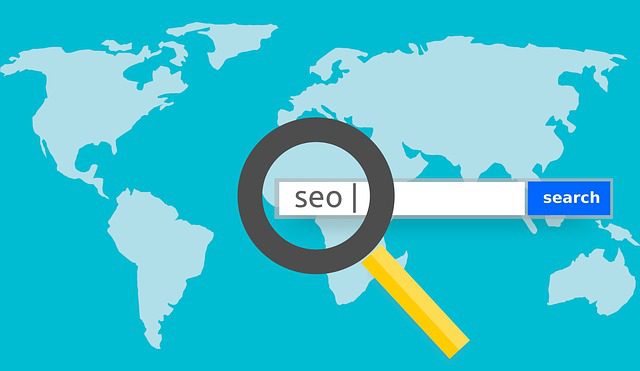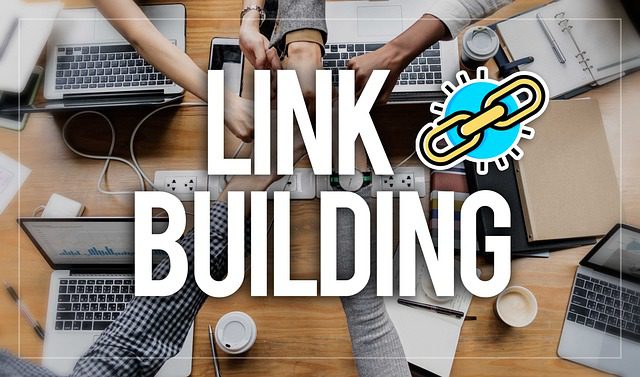Search engine optimization (SEO) is the process of improving the visibility and ranking of a website on search engines such as Google, Bing, and Yahoo. There are many factors that contribute to a website’s ranking, and it can be challenging to stay on top of all of them. However, there are certain mistakes that are commonly made that can negatively impact a website’s SEO. In this article, we will discuss some of the top SEO mistakes to avoid in order to improve your website’s ranking and visibility.
Keyword Stuffing
One of the most common SEO mistakes is keyword stuffing. This occurs when a website includes an excessive amount of keywords in their content, meta tags, and other elements of the website. This can lead to poor user experience and can also cause search engines to penalize the website. Instead, focus on including keywords in a natural and relevant way. Keyword stuffing is a black hat SEO tactic that involves cramming a website with an excessive amount of keywords or phrases in an attempt to manipulate search engine rankings. While this may have worked in the early days of search engines, it is now widely recognized as a negative practice that can harm a website’s search engine optimization (SEO) efforts.
In addition to negatively impacting the user experience, keyword stuffing can also lead to penalties from search engines. Search engines, such as Google, have algorithms in place to detect and penalize websites that engage in spammy practices, such as keyword stuffing. Penalties can range from a decrease in search engine rankings to a complete ban from the search engine’s index.
In today’s search landscape, search engines have become much more sophisticated and are able to accurately assess the relevance and quality of content on a website. They are able to detect when a website is using excessive keywords and will not reward such behavior. Instead, search engines favor websites that produce high-quality, relevant, and informative content.
Another reason why keyword stuffing is harmful is that it can lead to a lack of trust. When a website is filled with irrelevant keywords, it sends a signal to search engines that the website is attempting to manipulate rankings, rather than providing valuable information to users. This can result in a loss of trust from both search engines and users, which can negatively impact a website’s reputation and authority.
It’s important to note that keyword research and optimization are still important components of a successful SEO strategy. However, it’s crucial to avoid keyword stuffing and instead focus on creating high-quality, relevant, and informative content that accurately reflects the target keyword or phrase. This can be achieved through careful keyword research, the creation of well-structured content, and the incorporation of keywords in a natural and subtle manner.
Duplicate Content
Another common SEO mistake is having duplicate content. This occurs when the same or similar content appears on multiple pages of a website or across multiple websites. Search engines may penalize a website for having duplicate content, as it can be seen as an attempt to manipulate search rankings. Make sure to use unique, high-quality content with relevant keywords on your website.
Ignoring Meta Tags
Meta tags provide information about a website’s content to search engines. Title tags and meta descriptions are particularly important as they are often used in search engine results pages (SERPs) to provide a summary of the website’s content. Neglecting to include or optimize these tags can make it harder for search engines to understand the content of your website. Meta tags are HTML elements that provide information about a web page to search engines. They help search engines understand the content of a web page and determine whether it’s relevant to a user’s search query. The two most important meta tags for SEO are the title tag and the meta description, as they appear in the search engine results and provide a brief summary of the page’s content. Other meta tags, such as the robots tag, can also influence how search engines index and display a web page. While meta tags alone won’t guarantee high search engine rankings, they are a crucial part of an overall SEO strategy. The title tag, also known as the title element, is the text that appears in the top bar of a web browser and as the link in search engine results. It should accurately reflect the content of the page and be concise and attention-grabbing, as it is one of the most important factors in determining the relevance of a web page to a search query. The title tag should be no longer than 60 characters to ensure that it is not truncated in the search results.
The meta description, on the other hand, provides a brief summary of the page’s content that appears below the title in the search results. It should be written in a way that accurately reflects the content of the page and entices users to click through to the site. While the meta description is not a direct ranking factor, a well-written meta description can increase the click-through rate, which can indirectly improve search engine rankings.
The robots tag, which is also known as the “meta robots” tag, is used to control how search engines index a web page. For example, a webmaster can use the “noindex” value to prevent a page from being indexed, or the “nofollow” value to prevent search engines from following links on the page.
While meta tags are just one aspect of SEO, they play a crucial role in helping search engines understand the content of a web page and determine its relevance to a user’s search query. They can also influence how the page appears in the search results, which can directly impact its click-through rate and search engine rankings.
Not Optimizing for Mobile
With the increasing popularity of mobile devices, it’s important to ensure that your website is mobile-friendly. Not having a responsive, mobile friendly website is another common SEO mistake. A mobile-friendly website is easier to navigate and read on a smaller screen, and it can also help to improve your website’s SEO. Search engines are more likely to rank mobile-friendly websites higher in search results. Optimizing a website for mobile viewing involves several steps, including: Responsive design: Use a responsive web design approach that adjusts the layout and content to fit the screen size of the device being used.
- Content optimization: Keep the content simple, short, and easy to read, with appropriate font sizes and images optimized for mobile viewing.
- Load time optimization: Minimize the page load time by reducing the size of images, using compression techniques, and minimizing the use of heavy scripts and plugins. Navigation: Make sure the navigation is simple and easy to use, with buttons that are large enough to tap with a finger.
- Touchscreen optimization: Ensure that links and buttons are spaced out enough to be easily tap-able on a touchscreen. Mobile-friendly URLs: Use mobile-friendly URLs, with a simplified structure and avoiding the use of parameters and session IDs in the URL.
- Mobile metadata: Add mobile metadata, such as viewport, to control the display of the website on different devices. Implementing these steps will help ensure a good user experience for visitors accessing your website on mobile devices.
Not Building Backlinks
Backlinks are links from other websites to your website. These links signal to search engines that other websites consider your content valuable and relevant. However, not building backlinks or buying low-quality links can be detrimental to your website’s SEO. Instead, focus on building high-quality, relevant backlinks from reputable websites. Make sure you are following any spammy links pointing to your website as well. These spammy backlinks can be monitored and removed via the google disavow tool.
Building website backlinks is an important factor in improving search engine optimization (SEO). Some effective ways to build backlinks include:
- Creating high-quality, original content that naturally attracts links
- Guest posting on other reputable websites in your industry
- Earning mentions and links from influencers and thought leaders in your niche
- Developing relationships with other websites and collaborating on content
- Submitting your website to relevant web directories and industry-specific databases
- Reaching out to websites and asking for a link back in exchange for linking to them
- Participating in online communities and forums, and including a link to your website in your forum signature
- Utilizing social media to promote your content and earn social media shares with links back to your website
- Creating infographics and other visually appealing content that other websites may want to link to
- Monitor your website’s backlinks using a tool like Google Search Console, Google Disavow Tool or Ahrefs and remove any low-quality or spammy links.
It’s important to remember that building backlinks should be a gradual process and to avoid engaging in any unethical link building practices, such as buying links or participating in link schemes. These practices can result in penalties from search engines. Also, be sure to check for broken links and fix them asap!
Not Optimizing Internal Links
Internal links play a significant role in website navigation and can help to improve a website’s ranking. Internal links provide a way for Google, Bing, etc. to crawl and understand the structure and hierarchy of a website, making it easier for them to index its pages.
In addition to improving search engines’ ability to crawl a website, internal links can also help to distribute page authority and improve the overall ranking of a website. By linking to other pages within your website, you can pass along some of the authority of the linking page to the linked page, helping it to rank higher in search results.
Internal links can also improve the user experience on a website by providing a way for users to navigate between pages and find related content. This can increase the amount of time that users spend on the website, which can be a positive signal to search engines that the website provides valuable and relevant content.
Overall, neglecting to optimize for internal links can limit the potential of a website to rank well in search results and provide a good user experience. It is important to include internal links in a strategic and natural way to help improve your website’s SEO.
Neglecting Local SEO
Local SEO refers to the process of optimizing a website for local search results. This is particularly important for businesses that rely on local customers. Neglecting to optimize for local search results can make it harder for potential customers to find your business.
Optimizing your website for local search involves several strategies aimed at making your website more visible and relevant to local searches. Here are some of the steps you can take to optimize your website for local search:
- Claim your Google My Business listing: Google My Business is a free listing service provided by Google that allows you to manage your business information and appear in Google Maps and local search results. Make sure to claim your listing and keep your business information accurate and up-to-date.
- Include your business location and contact information: Make sure to include your business address, phone number, and other contact information prominently on your website. This information should be consistent across your website and other online listings to ensure accuracy.
- Use local keywords: Including local keywords in your website’s content, meta tags, and other elements can help to improve your visibility for local searches. Use keywords that include your business location and relevant local terms to increase relevance. Be careful not to use the wrong keywords.
- Build local backlinks: Local backlinks from reputable and relevant websites in your area can help to improve your visibility in local search results. Seek out opportunities to earn backlinks from local news outlets, directories, and other websites in your area.
- Encourage customer reviews: Online reviews can have a significant impact on your visibility in local search results. Encourage customers to leave reviews on your Google My Business listing and other review sites, and respond to any negative reviews to demonstrate your commitment to customer satisfaction.
- Use schema markup: Schema markup is a type of code that provides additional information about your website to search engines. Using schema markup for your business information, such as your business name, address, and phone number, can help to improve your visibility in local search results.
- Monitor your results: Regularly monitor your website’s performance in local search results to identify areas for improvement. Use tools such as Google Search Console and Google Analytics to track your website’s ranking and traffic, and make adjustments as needed to improve your performance.
Avoid common SEO mistakes and be sure to optimize for local SEO!
Not Tracking Results
SEO is an ongoing process, and it’s important to track your website’s progress over time. By tracking your website’s ranking, traffic, and other metrics, you can make adjustments as needed to improve your website’s performance. Without tracking, it’s difficult to know if your SEO efforts are paying off.
Not Optimizing for Voice Search
With the increasing popularity of voice-enabled devices, it’s important to optimize your website for voice search. Voice search queries tend to be longer and more conversational, so make sure to include long-tail keywords and natural language in your website’s content.
Not Optimizing for Featured Snippets
Featured snippets are the answer boxes that appear at the top of the SERPs. These snippets are designed to provide users with quick, relevant answers to their queries. Optimizing your website for featured snippets can help to increase visibility and drive more traffic to your website.
Not Optimizing for Images and Videos
Search engines can also crawl images and videos on your website, so it’s important to optimize these elements as well.
Do you have questions about your SEO master plan? Contact us for a free SEO audit & quote. Make sure you avoid the biggest SEO mistakes listed above!







